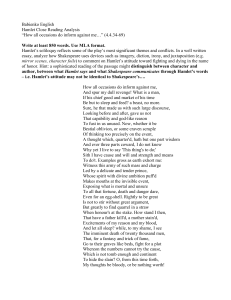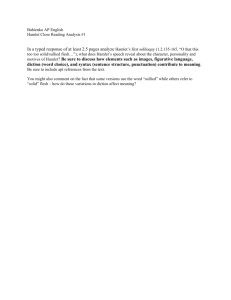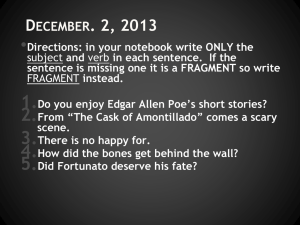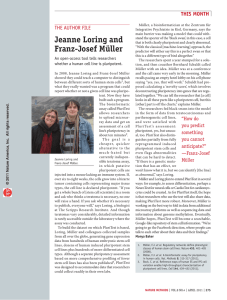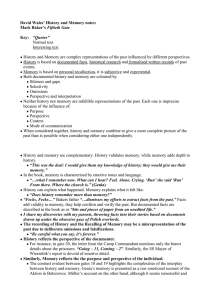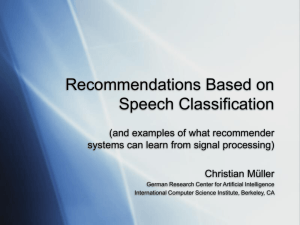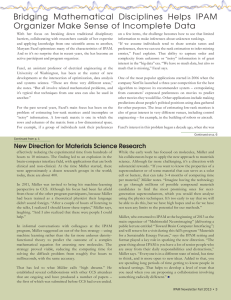Hamletmachine
advertisement
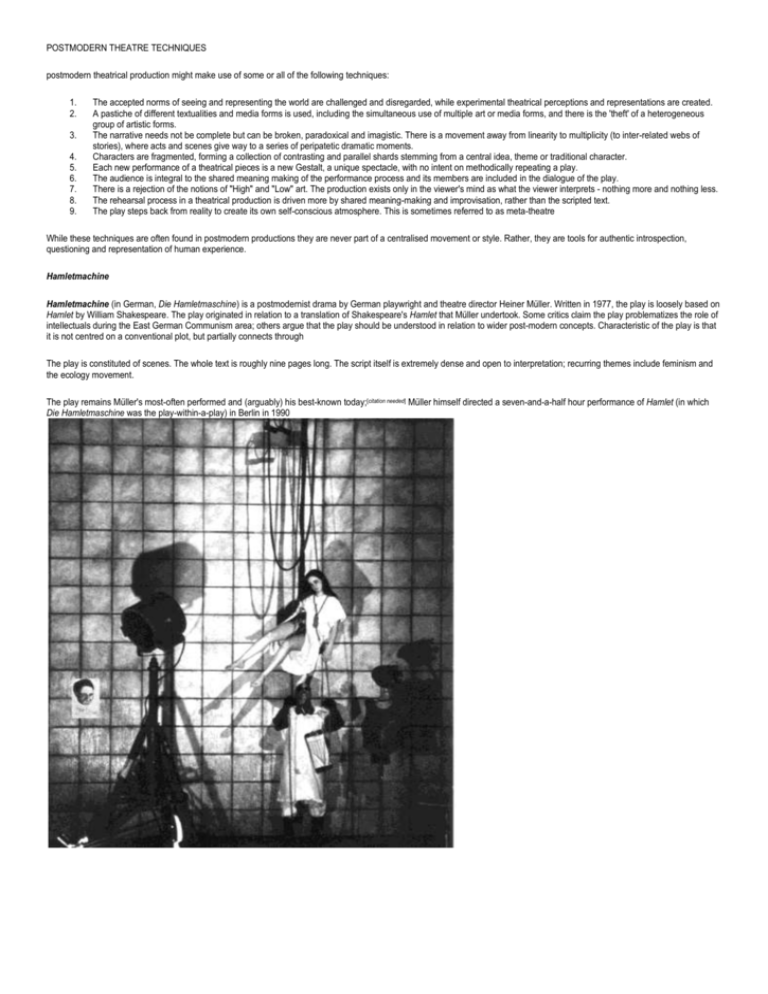
POSTMODERN THEATRE TECHNIQUES postmodern theatrical production might make use of some or all of the following techniques: 1. 2. 3. 4. 5. 6. 7. 8. 9. The accepted norms of seeing and representing the world are challenged and disregarded, while experimental theatrical perceptions and representations are created. A pastiche of different textualities and media forms is used, including the simultaneous use of multiple art or media forms, and there is the 'theft' of a heterogeneous group of artistic forms. The narrative needs not be complete but can be broken, paradoxical and imagistic. There is a movement away from linearity to multiplicity (to inter-related webs of stories), where acts and scenes give way to a series of peripatetic dramatic moments. Characters are fragmented, forming a collection of contrasting and parallel shards stemming from a central idea, theme or traditional character. Each new performance of a theatrical pieces is a new Gestalt, a unique spectacle, with no intent on methodically repeating a play. The audience is integral to the shared meaning making of the performance process and its members are included in the dialogue of the play. There is a rejection of the notions of "High" and "Low" art. The production exists only in the viewer's mind as what the viewer interprets - nothing more and nothing less. The rehearsal process in a theatrical production is driven more by shared meaning-making and improvisation, rather than the scripted text. The play steps back from reality to create its own self-conscious atmosphere. This is sometimes referred to as meta-theatre While these techniques are often found in postmodern productions they are never part of a centralised movement or style. Rather, they are tools for authentic introspection, questioning and representation of human experience. Hamletmachine Hamletmachine (in German, Die Hamletmaschine) is a postmodernist drama by German playwright and theatre director Heiner Müller. Written in 1977, the play is loosely based on Hamlet by William Shakespeare. The play originated in relation to a translation of Shakespeare's Hamlet that Müller undertook. Some critics claim the play problematizes the role of intellectuals during the East German Communism area; others argue that the play should be understood in relation to wider post-modern concepts. Characteristic of the play is that it is not centred on a conventional plot, but partially connects through The play is constituted of scenes. The whole text is roughly nine pages long. The script itself is extremely dense and open to interpretation; recurring themes include feminism and the ecology movement. The play remains Müller's most-often performed and (arguably) his best-known today;[citation needed] Müller himself directed a seven-and-a-half hour performance of Hamlet (in which Die Hamletmaschine was the play-within-a-play) in Berlin in 1990

